It is common for roles of dominance and submissiveness in twins to develop as they become toddlers. It’s only natural for leadership to emerge, and I first noticed one twin was dominant over the other at the age of 1yr. But what happens when the dominant twin loses power?
George has always been the dominant twin, although there was a time at the end of last year when Arthur made a challenge for the throne. It was a tough couple of months because they fought like cat and dog. Since then the situation between them has much improved because Arthur chose to step back and let George run the show after all.
But… recently we’ve had a shake-up and the twin pecking order has been obliterated! Poor George.
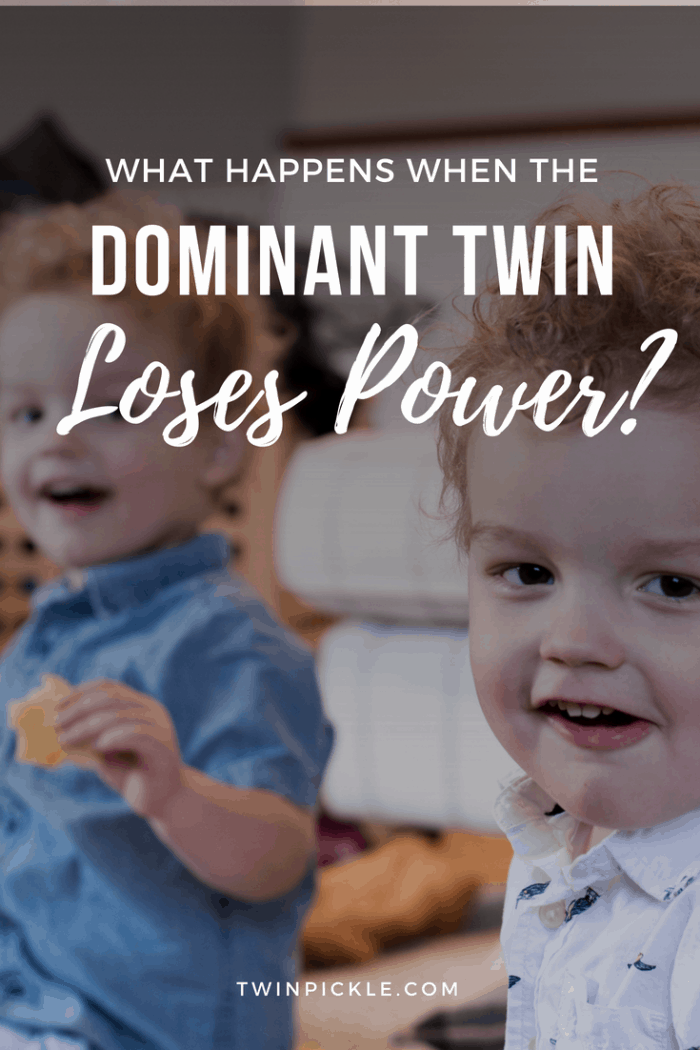
We’ve Started Daycare, Hooray!
When the boys were 1yr we employed a part-time Nanny to help me out a couple of afternoons a week, a total blessing for my sanity. But between their speech delay and their closed little twin bubble we thought it time at 2.5yrs to get them into a classroom environment to make some friends and gain independence.
We’ve had mixed success. The new social environment is definitely helping with their speech progress and they quickly picked up a few new words. But, as identical as they may look, my boys have very different personalities and the change of routine has been particularly hard on George.
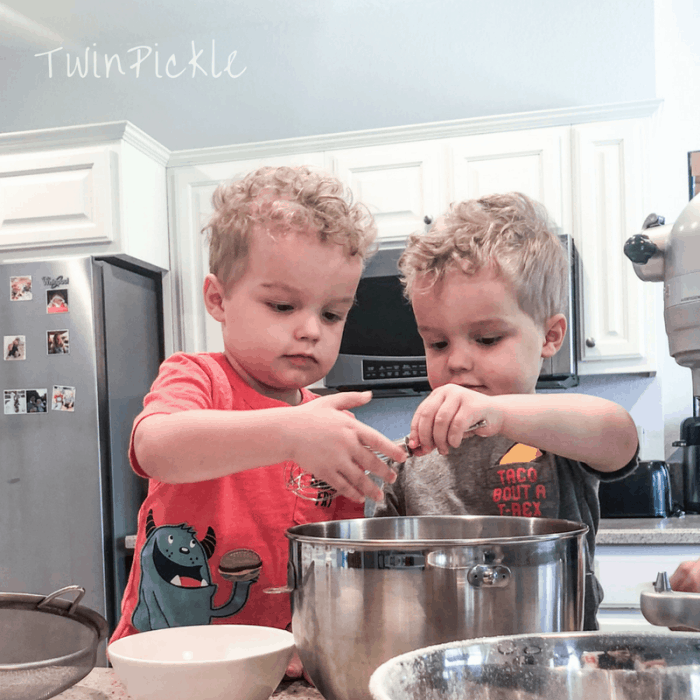
Social Status is Power
Since birth, there has always been a slight favoritism from passers-by for George. He always knew how to pull the most adorable smile, he was a little chubbier, his hair a little bit curlier. Arthur would often turn away from strangers, while George played into their hands and loved every moment. He was a natural charmer, loves the camera and knows how to please a crowd… of adults.
Arthur is not interested in impressing grown-ups. If you turn the camera on him he screws up his face and laughs with mischief. He’s sneaky with a fantastic sense of humor. But in a social environment with other children, Arthur flourishes. He adores babies and quickly makes friends at the park. I knew he was going to find Daycare a little easier than his brother but the difference is staggering.
Arthur has made lots of new friends and is always giggling and playing nicely with others. George often sits alone and cries when he sees me at the end of the day. He doesn’t make friends as easily as his brother and as he knows, social status is power… the fall of King George from his throne may have come.
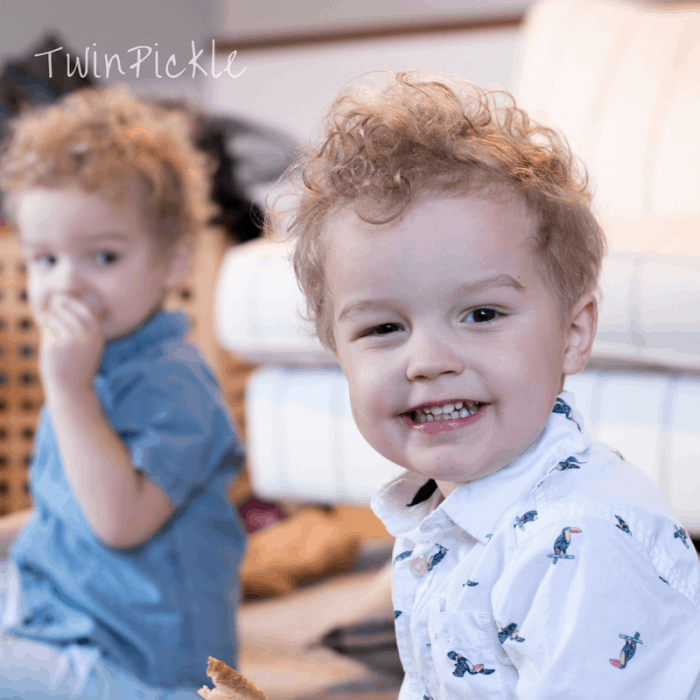
What Happens When the Dominant Twin Loses Power?
George is having a rough time of it, poor baby. Daycare has brought with it a number of changes. Soon after joining Daycare Arthur starting climbing into bed with George at night, something they have never done before. Was it for comfort or was it a power play? Who knows.
The biting and hitting are back, and George has even lashed out at other children which is awful news to digest. While Arthur runs off into the playground in the morning, George clings to my leg and needs comforting. I am told his biting incidents have happened when he is trying to be alone and other kids interrupt his personal space. Unless it’s his brother, George doesn’t want anyone else snuggled in too close.
At home, it’s the Clash of the Titans… Arthur’s newfound social status has given him the courage to stand up to his brother. George has become bad at sharing and is all around a bit of a grump.
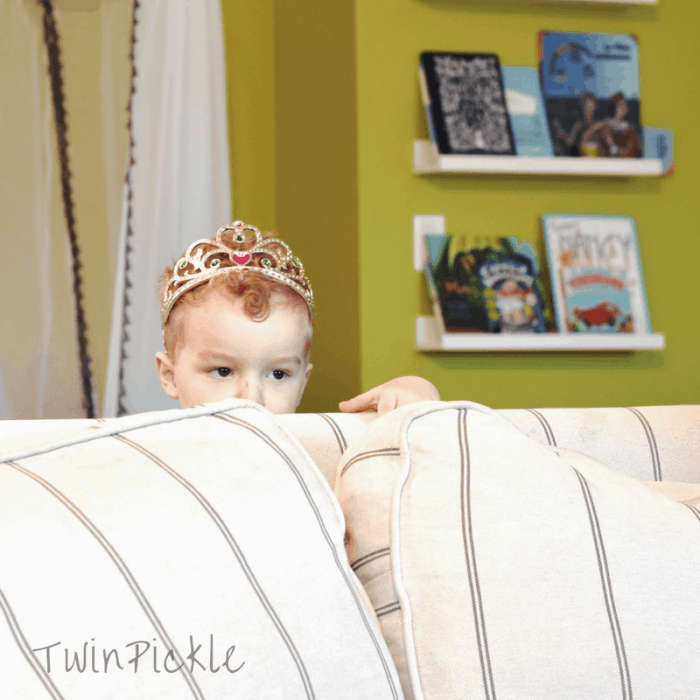
Solutions for Dominant/Submissive Twin Behaviour
I feel like George is already ‘the naughty twin’ at Daycare and I’d really like to help him adjust to his new environment. A classroom is a more complex pecking order. He will find his place eventually but I really hope he doesn’t try to take down too many kids in the process.
If, for example, a child is labeled as the “disruptive twin,” he or she is more likely to continue to be disruptive. Negative labels may adversely affect a child’s self-esteem when he or she is perceived as inferior in some way to a sibling.
Megan T. Alexander, Educating Multiples in the Classroom: Together or Separate?
Action Plan For when the dominant twin loses power:
- Separation. It has been suggested that if/when the Twins start special needs preschool when they turn 3yrs (dependent on their speech progress evaluation) they should be separated into different classrooms. At the time I felt a little upset by this idea but I’m starting to think it’s a good move.
- Address the associated bad behavior. All kids are different but aggression is a common way for kids to show their anxiety and frustration. Because biting is an urge George is struggling with, we invested in a sensory chew necklace. A friend suggested it may work like a stress ball, allowing him to bite down on something safe when he needs it. He’s only on his second day with it but yesterday went great so I’m keeping my fingers crossed!
- Praise sharing. Although timeouts and reprimands help make sure George understand his bad behavior, he is clearly dealing with some anxiety and requires more than just a telling off. He needs to feel good about his successes and enjoy getting along with his brother. When they play nicely together they have so much fun, so I have been trying to celebrate that with them as much as possible.
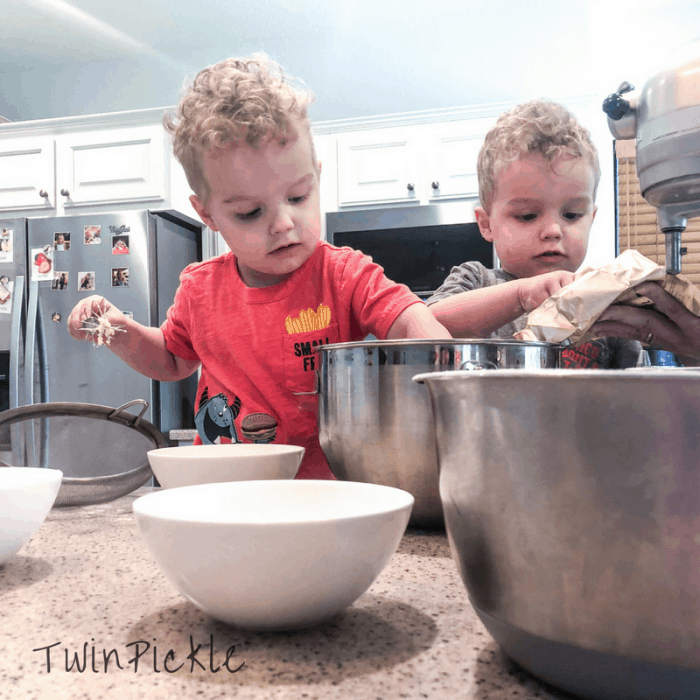
- Spot the trigger. Aggressive incidents don’t tend to come out of nowhere. There is usually a build-up of conflict and although we can’t always be watching their every move we can try to intervene and defuse the situation before it turns nasty. Distract with humor, a fun game or song they both enjoy.
- Let them be different. If George likes a little more space, let him have it. Maybe Arthur will be the social butterfly and George will have one or two close friends. Maybe he’ll come out of his shell and they’ll all get along together. I have no idea where it will go but I do know they are different and I intend to let them stay that way.
Update: Things have hugely improved with the Twins’ behavior. Check out my latest post on the science behind twin bullying behavior.

